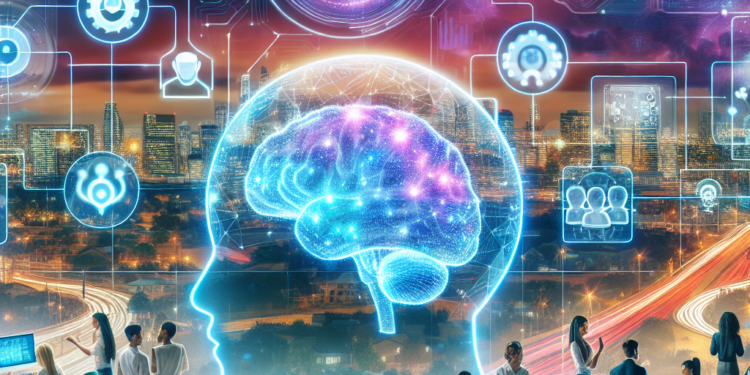Artificial intelligence (AI) has fundamentally transformed the way businesses operate in every industry. One of the areas where AI has had a significant impact is in the on-demand service sector. AI startups are leveraging the power of machine learning algorithms to create innovative and efficient on-demand service models that are revolutionizing the way services are delivered to consumers.
The on-demand service industry has seen tremendous growth in recent years, with consumers demanding fast and convenient access to a wide range of services such as transportation, food delivery, home services, and more. AI startups are at the forefront of this evolution, using AI technologies to streamline processes, create better user experiences, and drive efficiencies in service delivery.
One of the key ways AI startups are innovating in the on-demand service sector is through the use of predictive analytics. By analyzing vast amounts of data, AI algorithms can predict consumer behavior, trends, and preferences, allowing service providers to anticipate demand and optimize their operations accordingly. This predictive capability enables on-demand service providers to better allocate resources, improve service delivery times, and personalize the customer experience.
For example, AI-powered transportation services such as Uber and Lyft use predictive analytics to match drivers with riders in real-time, minimizing wait times and optimizing routes for maximum efficiency. Similarly, food delivery services like DoorDash and Grubhub use AI algorithms to predict demand and manage delivery fleets effectively, ensuring that orders are delivered on time and to the right locations.
Another area where AI startups are innovating in the on-demand service industry is through the use of chatbots and virtual assistants. These AI-powered tools can enhance customer service, provide real-time support, and automate routine tasks, freeing up human agents to focus on more complex issues. Chatbots are increasingly being used by on-demand service providers to handle customer inquiries, process orders, and provide personalized recommendations, improving the overall customer experience.
For example, on-demand cleaning service provider Handy uses a chatbot to handle customer inquiries and bookings, allowing customers to schedule appointments and make payments seamlessly through a messaging interface. Similarly, food delivery service Postmates uses a virtual assistant to provide real-time updates on order status, resolve customer issues, and recommend personalized menu items based on past orders.
AI startups are also leveraging machine learning algorithms to optimize pricing strategies in the on-demand service sector. By analyzing market dynamics, competitor pricing, and customer behavior, AI algorithms can help service providers set dynamic pricing models that respond to demand fluctuations in real-time. This dynamic pricing capability allows on-demand service providers to maximize revenues, attract more customers during off-peak hours, and optimize resource utilization.
For example, ride-sharing service Uber uses dynamic pricing algorithms to adjust fares based on factors such as traffic congestion, weather conditions, and rider demand, ensuring that drivers are incentivized to work during busy periods and that customers have access to rides when they need them. Similarly, food delivery service Grubhub uses AI algorithms to offer discounts and promotions to customers during slow periods, driving demand and increasing order volume.
AI startups are also exploring the use of drone technology to provide on-demand services in remote or hard-to-reach areas. Drones can be used for a variety of applications, including delivering packages, conducting surveillance, and performing inspections in areas where traditional modes of transportation are impractical. AI algorithms can be used to control drone fleets, optimize flight paths, and ensure safe and efficient operations.
For example, AI startup Zipline uses drones to deliver medical supplies to remote areas in Africa, bypassing impassable roads and reducing delivery times from hours to minutes. Similarly, on-demand drone delivery services such as Flirtey and Wing are exploring the use of AI algorithms to deliver packages to customers in urban areas, minimizing traffic congestion and reducing carbon emissions.
AI startups are also exploring the use of autonomous vehicles to provide on-demand transportation services. Self-driving cars and trucks have the potential to revolutionize the transportation industry, offering a safer, more efficient, and more cost-effective alternative to traditional modes of transportation. AI algorithms can be used to control autonomous vehicles, optimize routes, and ensure passenger safety.
For example, AI startup Waymo is developing self-driving cars that can provide on-demand transportation services to customers in cities such as Phoenix, Arizona. Similarly, on-demand trucking service Starsky Robotics is exploring the use of autonomous trucks to transport goods across long distances, reducing delivery times and operating costs.
In conclusion, AI startups are driving innovation in the on-demand service industry by leveraging the power of AI technologies to create more efficient, convenient, and personalized service models. From predictive analytics and chatbots to dynamic pricing and drone technology, AI startups are transforming the way services are delivered to consumers, offering unprecedented levels of convenience and efficiency. As AI continues to evolve and mature, we can expect to see even more groundbreaking innovations in the on-demand service sector, shaping the future of how services are accessed and consumed.













